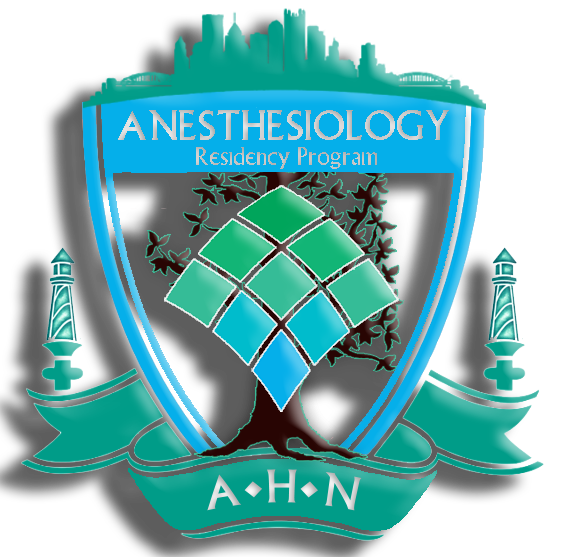About the Program
The Allegheny Health Network Medical Education Consortium Anesthesiology Residency Training Program is fully accredited for three to four years of training by the Accreditation Council for Graduate Medical Education. The Advanced program consists of a three-year training program in Clinical Anesthesia. The Categorical program adds to this a Fundamental Clinical Skills (FCS) year at home institutions. The Anesthesiology Department participates in the National Resident Matching Program (NRMP) for both Advanced and Categorical positions. Each provides residents eligibility to participate in the American Board of Anesthesiology certification exams.
Our enthusiastic physician faculty members come from a diversity of clinical and educational backgrounds, ensuring that residents have a rich educational experience.
The training continuum provides comprehensive experience in the management of patients in all surgical subspecialties, critical care medicine, pain management, postanesthesia care, and ambulatory anesthesia, while also preparing the resident for a broad range of practice opportunities and fellowships in anesthesiology.
The program provides comprehensive education at four major hospitals in Pittsburgh: Allegheny General Hospital, West Penn Hospital, Forbes Hospital, and Children’s Hospital of Pittsburgh of UPMC. An enthusiastic faculty of more than 60 physicians with diverse backgrounds provides a rich educational experience and balance between didactic and clinical teaching. The academic program is affiliated with Drexel University School of Medicine.
Special Program Features
-
Each house officer may attend one major educational meeting during each of the three years of the residency (CA-1 to CA-3). The yearly educational allowance will cover expenses to most meetings in the United States. Alternatively, residents may use this educational allowance to purchase reading or computer educational material. The Anesthesiology Residency program is part of the Graduate Medical Education (GME) opportunities offered by the AHN Medical Education Consortium.
-
The Anesthesiology Departments at West Penn Hospital and Allegheny General Hospital have a strong focus on 2-D and 3-D intraoperative transesophageal echocardiography (IOE). Faculty who perform IOE and teach anesthesiology residents are testamurs of the Perioperative Transesophageal Echocardiography Examination or are board-certified by the National Board of Echocardiography.
The IOE service is provided exclusively by anesthesiologists at West Penn and Allegheny General hospitals. Faculty members have participated in preparing the national written examination for perioperative transesophageal echocardiography (TEE) and regularly give lectures at national and international meetings on the subject of intraoperative echocardiography.
Residents have ample opportunity to learn IOE from faculty members during their cardiac and dedicated TEE rotations.
-
Simulation is an important part of the Anesthesiology Residency Training Program. From the first days through the completion of the 3-year residency, Anesthesiology residents will find that learning through simulation is essential. Simulations are conducted using resources of the STAR Center, which is located in the West Penn Hospital School of Nursing building.

